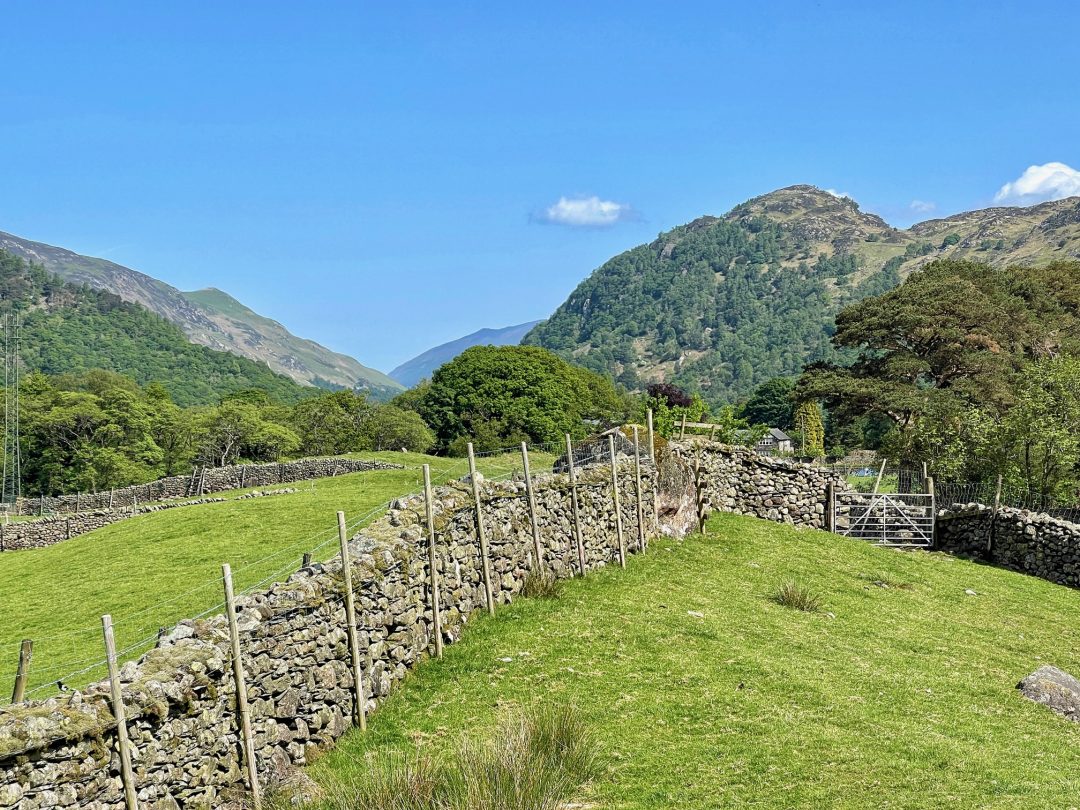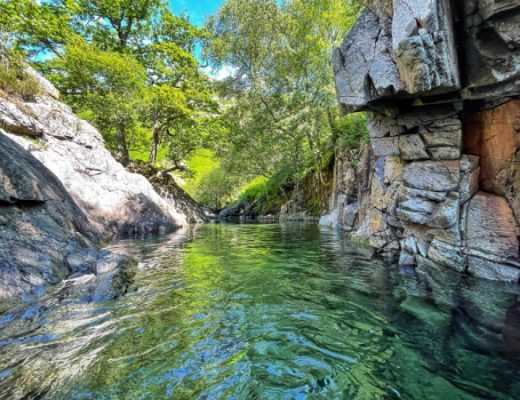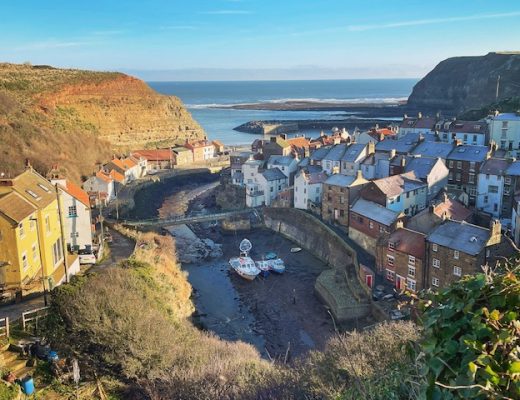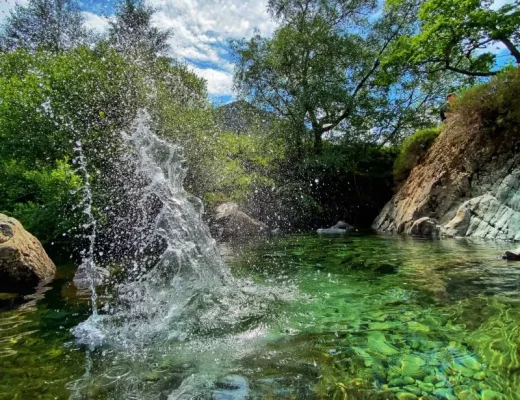The UK countryside is a rich tapestry of natural beauty where we can reconnect with nature, find peace and experience outdoor adventures. But with this privilege comes a shared responsibility to protect our precious landscapes for everyone, now and for future generations. The Countryside Code isn’t just about rules; it’s about respect, care and a deep appreciation for the natural world.
Understanding the Countryside Code
The UK Countryside Code isn’t a complex set of laws; it’s a simple guide that helps us to enjoy the countryside responsibly. Think of it as a friendly compass, guiding us towards respectful interactions and sustainable practices. Its core message is beautifully simple: Respect, Protect, Enjoy. By embracing these principles, we can all contribute to the preservation of our landscapes, ensuring they remain accessible for everyone.
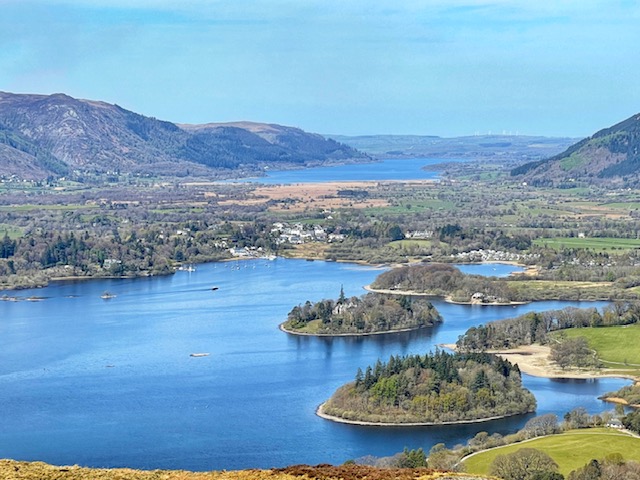
Respect Everyone: The countryside is a living, working environment for many. We should be considerate of local residents, farmers and other visitors. Give way on narrow paths, keep noise to a minimum and always leave gates as we find them – either closed to keep livestock in or open if that’s how they were. Park responsibly by not blocking gates, access roads or driveways.
Protect the Environment: This is where our actions have the greatest impact. Follow marked paths and rights of way to protect the habitats of plants and animals. Most importantly, don’t light fires as even the smallest spark can devastate an entire ecosystem. Leave no trace by putting all litter and dog poo in the nearest bin or taking it home with you. We can also help by picking up any other litter we might find on our travels (read about the inspiring dedication of Lindsay Buck, aka the Wasdale Womble, and others that continue to protect the dramatic landscape of Wasdale and its surrounding areas). Ensure that dogs are kept on a lead to avoid scaring or, even worse, physically harming other animals.
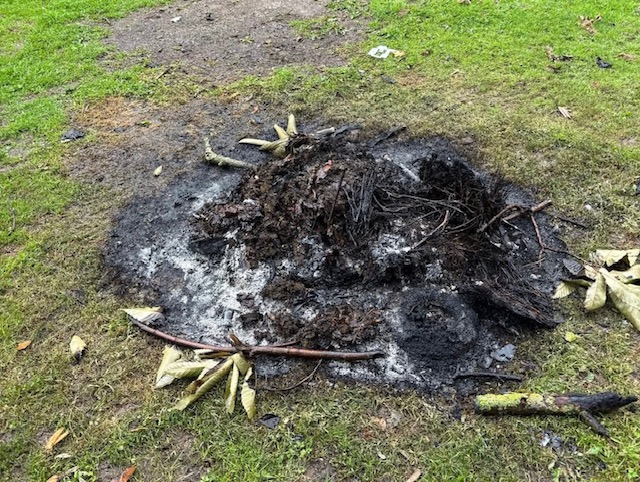
Enjoy the Countryside: Plan your adventures wisely. Check the weather, wear appropriate footwear and clothing and let someone know your route, especially if you’re heading to more remote areas. Being prepared ensures our safety and allows us to fully immerse ourselves in the beauty around us.
Wild Camping vs. Fly Camping
There’s often confusion between respectful, minimalist wild camping and the detrimental practice of fly camping. Understanding the difference is crucial for any outdoor adventurer.
Wild Camping: This is the art of lightweight, leave-no-trace camping in remote, often high-altitude locations and is characterised by:
- Pitching late, leaving early and choosing a spot out of sight of houses and paths.
- Using lightweight gear, no fires (stoves for cooking only) and absolutely no trace left behind.
- In England, Wales and Northern Ireland, wild camping requires the landowner’s permission, with the exception of Dartmoor. The Land Reform (Scotland) Act 2003 generally allows wild camping on most unenclosed land so long as it’s done responsibly and without vehicles, strictly adhering to Leave No Trace principles. For more information, refer to The Countryside and Rights of Way Act.
- Usually, individuals or very small groups to maintain a low profile.
Fly Camping: In stark contrast, fly camping is an illegal, irresponsible and highly damaging practice. It involves setting up camp without permission, often in inappropriate places, such as car parks, private fields and beauty spots not designated for camping, and typically leaving behind significant litter, human waste and even fire damage.
- No respect for private property, local bylaws or environmental impact.
- Leaving behind damage and litter, often associated with abandoned tents, bags of rubbish, broken glass, the chopping down of trees, and uncontrolled fires.
- Fly camping damages the environment, causes conflict with landowners and local communities, and gives responsible wild campers a bad name. It can result in hefty fines, eviction and the closure of access to beautiful areas.
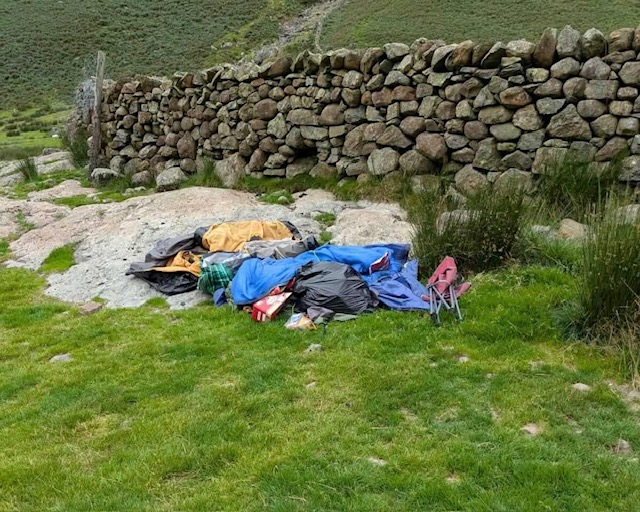
The distinction is clear, wild camping is about coexisting with nature respectfully while fly camping is an act of disrespect and causes ecological damage. Always seek permission or camp in designated campsites if you’re unsure about wild camping regulations in a specific area.
Our Role in Respecting and Taking Care of the Countryside
By understanding and following the Countryside Code and Leave No Trace principles, we play a vital role in preserving the beauty of our natural spaces. There are lots of groups and organisations across the UK that have taken action to preserve our countryside. The Binluencers, based in Keswick, is just one of the groups that’s on a mission to help clean up the Lake District and get the message across to everyone that visits the national park.
If you want to enjoy breaks in the Lake District without a car, there are plenty of public transport options available in many areas. Better still, hire a bike from one of the companies like Total Adventure in Bowness-on-Windermere or explore on foot.

So, as we plan our next adventure, we should remember the privilege of exploring these incredible landscapes. Go explore, inhale the fresh air, gaze at the views and ensure the countryside endures for generations to come.

